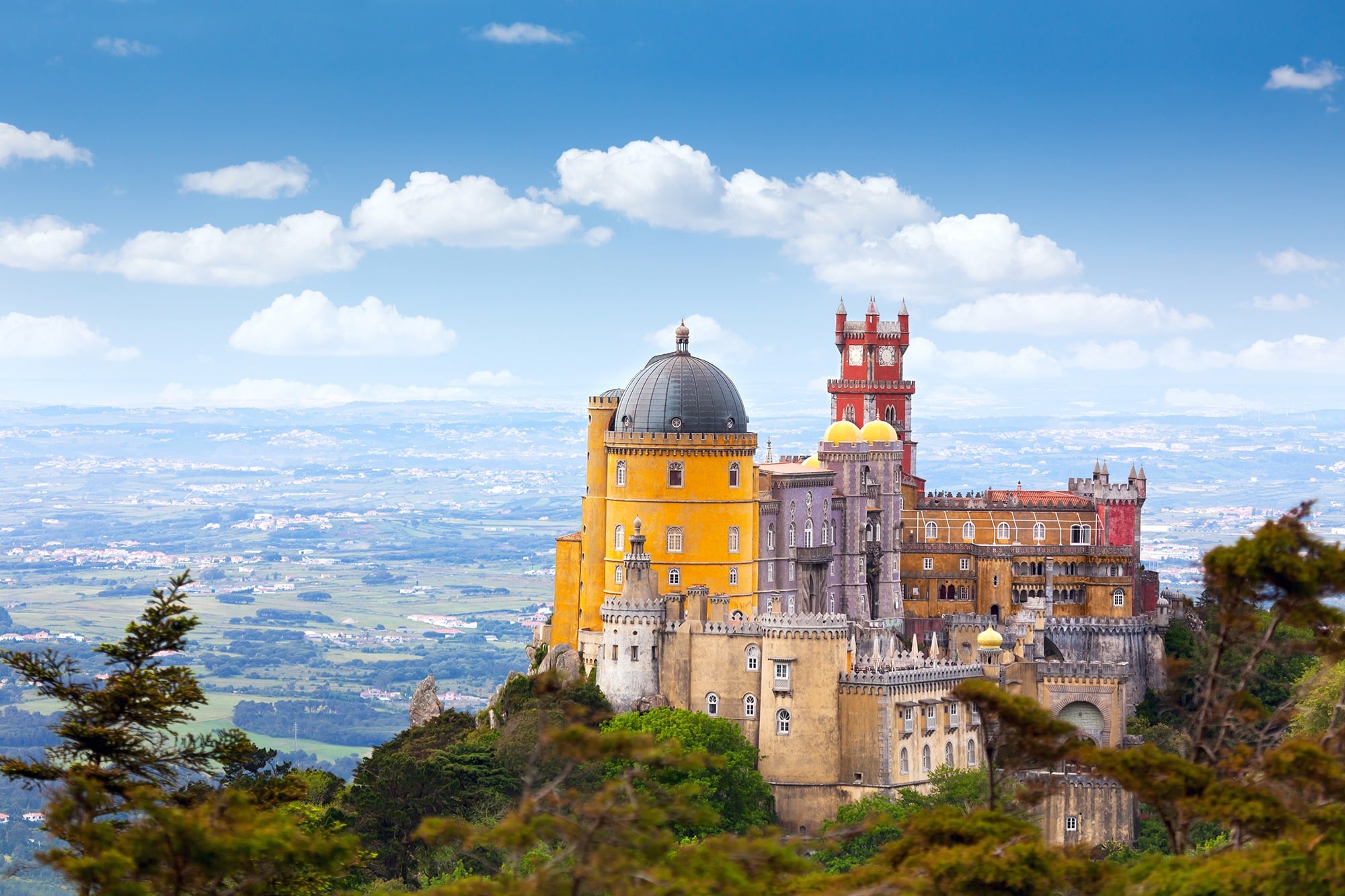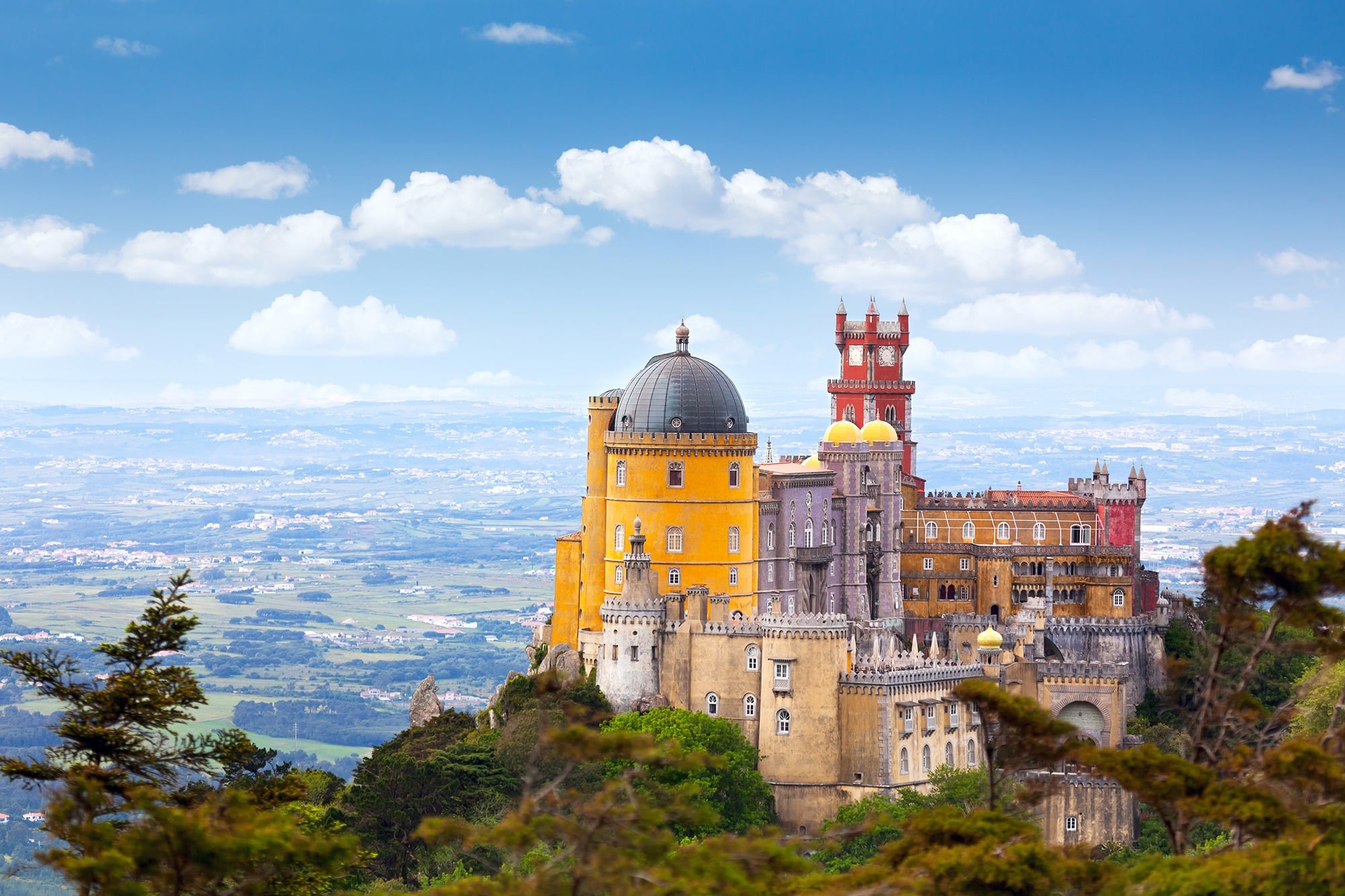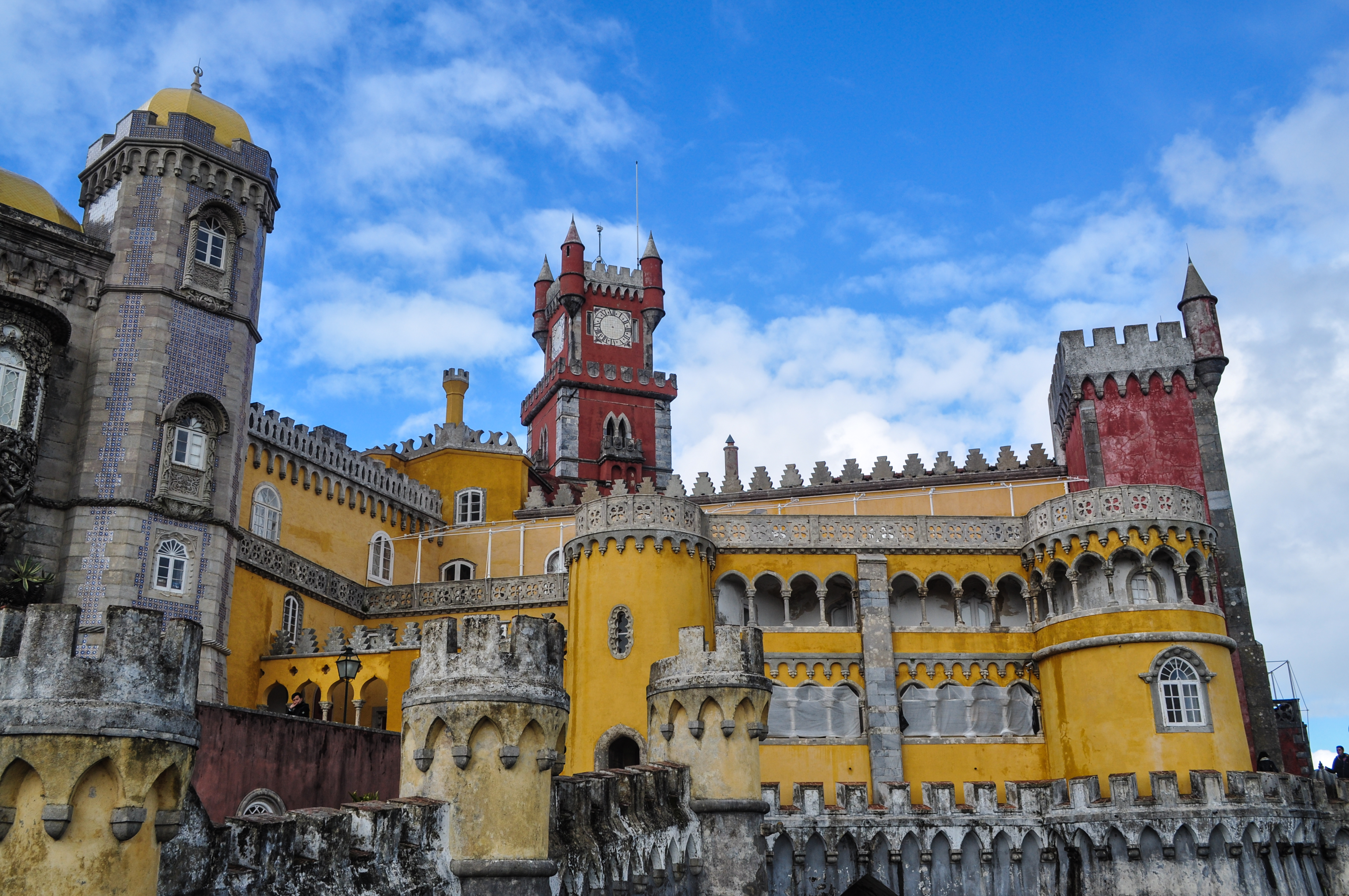
Portugal, a nation that whispers tales of ancient explorers and sings with the rhythm of Fado, is a country that captivates the soul. Nestled on the Iberian Peninsula, this sun-drenched land boasts a rich tapestry woven from breathtaking landscapes, millennia of history, and a culture that embraces both tradition and innovation. From the dramatic cliffs of the Algarve to the charming streets of Lisbon and the verdant vineyards of the Douro Valley, Portugal offers an unforgettable journey for every traveler.
Unveiling Portugal’s Treasures: Top Attractions
Portugal’s allure lies in its diverse offerings, catering to a spectrum of interests. Here are some of its most iconic attractions:

Related Articles about Portugal: A Tapestry of Sun-Kissed Shores, Ancient History, and Vibrant Culture:
- Egypt: A Journey Through Timeless Wonders
- Australia Unveiled: A Comprehensive Guide to the Land of Sun, Sand, and Spirit
- Milan: A Comprehensive Travel Guide for the Fashionable Explorer
- Ukraine: A Journey Through History, Culture, and Unyielding Spirit
- The Jewel of Arabia: An Ultimate Travel Guide to the United Arab Emirates
Lisbon: The City of Seven Hills and Endless Charm
The vibrant capital city, Lisbon, is a captivating blend of old-world charm and modern energy.
- Belém Tower & Jerónimos Monastery: UNESCO World Heritage sites, these magnificent structures are testaments to Portugal’s Age of Discovery, showcasing exquisite Manueline architecture. The tower, a former fortress, stands proudly on the Tagus River, while the monastery is a masterpiece of Gothic and Renaissance design.
- Alfama District: Lose yourself in the labyrinthine alleys of Alfama, Lisbon’s oldest district. Here, you’ll find traditional Fado houses, charming tiled buildings, and panoramic viewpoints like Miradouro das Portas do Sol.
- Tram 28: Embark on a quintessential Lisbon experience by hopping on the iconic Tram 28. This vintage tram rattles through the historic neighborhoods, offering a scenic and authentic way to explore the city.
- Sintra: A fairytale town nestled in the Sintra Mountains, just a short train ride from Lisbon. Sintra is a wonderland of romantic palaces and mystical castles, including the vibrant Pena Palace, the mystical Quinta da Regaleira with its enigmatic initiation well, and the Moorish Castle offering breathtaking views.
Porto: The Birthplace of Port Wine and Riverside Beauty

Located in the north, Porto is a city that exudes character and sophistication.
- Ribeira District: This UNESCO World Heritage site is a vibrant riverside promenade lined with colorful buildings, lively restaurants, and traditional Rabelo boats that once transported port wine.
- Dom Luís I Bridge: An iconic iron bridge designed by a student of Gustave Eiffel, offering spectacular views of the Douro River and both sides of the city.
- Livraria Lello: Often cited as one of the most beautiful bookstores in the world, Livraria Lello’s stunning Art Nouveau architecture and grand staircase are a must-see for bibliophiles and design enthusiasts.
- Port Wine Cellars in Vila Nova de Gaia: Across the river from Porto, Vila Nova de Gaia is home to numerous port wine cellars where you can learn about the production process and, of course, indulge in tastings.
The Algarve: Sun, Sand, and Dramatic Coastlines
Portugal’s southernmost region is renowned for its golden beaches, dramatic cliffs, and charming fishing villages.
- Praia da Marinha: Consistently ranked among the most beautiful beaches in the world, Praia da Marinha boasts stunning rock formations, sea caves, and crystal-clear waters.
- Benagil Cave: A breathtaking sea cave accessible by boat or kayak, featuring a natural skylight that illuminates the interior with a magical glow.
- Lagos: A lively town with a historic old town, beautiful beaches like Praia Dona Ana and Praia do Camilo, and the striking Ponta da Piedade rock formations.
- Tavira: A charming and less developed town in the eastern Algarve, known for its Roman bridge, historic churches, and the nearby Ilha de Tavira, a pristine barrier island.
Other Unmissable Destinations:
- Douro Valley: A UNESCO World Heritage landscape of terraced vineyards where port wine is produced. Take a scenic train ride or a boat cruise along the river for unforgettable vistas.
- Évora: Located in the Alentejo region, Évora is a beautifully preserved medieval city with a Roman Temple, a macabre Chapel of Bones, and a charming historic center.
- Coimbra: Home to one of Europe’s oldest universities, Coimbra boasts a magnificent library (Biblioteca Joanina) and a rich academic heritage.
- Madeira: This autonomous Portuguese archipelago in the Atlantic Ocean is known as the "Pearl of the Atlantic" for its dramatic volcanic landscapes, lush levada walks, and unique flora.
- Azores: Another stunning archipelago in the mid-Atlantic, the Azores are a paradise for nature lovers, offering volcanic crater lakes, hot springs, whale watching, and lush green landscapes.
A Glimpse into Portugal’s Storied Past
Portugal’s history is as captivating as its landscapes. From its early beginnings as a Roman province, it rose to prominence as a global maritime power during the Age of Discovery in the 15th and 16th centuries. Explorers like Vasco da Gama, Ferdinand Magellan, and Bartholomew Diaz charted new territories, establishing a vast colonial empire that stretched across Africa, Asia, and South America. This era left an indelible mark on Portuguese culture, architecture, and language.
The country later experienced periods of foreign rule, including a Spanish union and a Napoleonic invasion. The 20th century saw the establishment of a republic, followed by a long period of authoritarian rule under António de Oliveira Salazar. The Carnation Revolution in 1974 brought democracy back to Portugal, ushering in a new era of freedom and prosperity. Today, Portugal is a proud member of the European Union, cherishing its rich heritage while embracing a modern outlook.
Navigating Portugal: Essential Travel Tips
To make your Portuguese adventure seamless and enjoyable, consider these practical tips:
- Language: Portuguese is the official language. While English is widely spoken in tourist areas, learning a few basic Portuguese phrases will be greatly appreciated.
- Currency: The Euro (€) is the official currency.
- Visa Requirements: Check visa requirements based on your nationality well in advance of your travel.
- Safety: Portugal is generally a very safe country for tourists. However, like any urban area, be aware of pickpocketing in crowded tourist spots.
- Tipping: Tipping is not mandatory but is appreciated for good service. A 5-10% tip is customary in restaurants.
- Siesta: While less prevalent in major cities, some smaller shops and businesses may close for a few hours in the afternoon.
- Power Outlets: Portugal uses Type F power sockets (two round pins). The voltage is 230V.
- Respect Local Customs: Be mindful of local customs, especially when visiting religious sites. Dress modestly when entering churches.
Finding Your Perfect Abode: Accommodation Options
Portugal offers a diverse range of accommodation to suit every budget and travel style:
- Hotels: From luxurious five-star resorts to charming boutique hotels, you’ll find a plethora of options in all major cities and tourist destinations.
- Guesthouses (Pousadas): These often historic buildings converted into charming guesthouses offer a unique and authentic Portuguese experience.
- Apartments and Vacation Rentals: Ideal for families or longer stays, renting an apartment or villa provides more space and flexibility. Websites like Airbnb and Booking.com offer a wide selection.
- Hostels: Budget-friendly and a great way to meet fellow travelers, hostels are abundant in cities like Lisbon and Porto.
- Agriturismo: For a rural escape, consider staying at an agriturismo, often located on working farms in the countryside, offering a taste of local life.
Getting Around: Transportation in Portugal
Portugal boasts a well-developed transportation network, making it easy to explore the country:
- By Air: The main international airports are in Lisbon (LIS) and Porto (OPO). Faro (FAO) serves the Algarve. Domestic flights connect major cities.
- By Train: Portugal’s national railway company, Comboios de Portugal (CP), operates an extensive network connecting most major towns and cities. High-speed trains (Alfa Pendular) are available on key routes.
- By Bus: Rede Expressos is the largest intercity bus company, offering a comprehensive network and often a more affordable alternative to trains for certain routes.
- Car Rental: Renting a car is a great option for exploring the countryside, the Algarve, or the Douro Valley at your own pace. Be aware of tolls on major highways.
- Within Cities:
- Lisbon: The metro, trams, buses, and funiculars are efficient for getting around. Taxis and ride-sharing services are also readily available.
- Porto: The metro, trams, and buses are the primary modes of public transport.
- Other Cities: Most historic centers are best explored on foot. Local buses and taxis are usually available.
The Golden Season: Best Time to Visit Portugal
Portugal enjoys a pleasant climate for much of the year, but the "best" time to visit depends on your preferences:
- Spring (April-May): This is a fantastic time to visit. The weather is mild and sunny, wildflowers are in bloom, and the crowds are smaller than in the summer months. It’s ideal for sightseeing, hiking, and exploring cities.
- Summer (June-August): The peak tourist season, offering hot and sunny weather, perfect for beach holidays in the Algarve. Be prepared for larger crowds and higher prices.
- Autumn (September-October): Another excellent time to visit. The weather remains warm and pleasant, the sea is still warm enough for swimming, and the autumn colors in the Douro Valley are stunning. It’s also a great time for wine harvest festivals.
- Winter (November-March): While cooler and with a higher chance of rain, winter offers a more tranquil experience. Cities are less crowded, and prices for accommodation and flights are generally lower. It’s a good time for city breaks, enjoying cozy Fado evenings, and exploring museums. The islands of Madeira and the Azores are also pleasant year-round.
Portugal is a country that will leave an indelible mark on your heart. Whether you’re drawn by its rich history, its breathtaking landscapes, its delicious cuisine, or its warm and welcoming people, a journey to Portugal promises an experience that is both enriching and unforgettable. So pack your bags, embrace the Portuguese spirit, and prepare to be enchanted.





